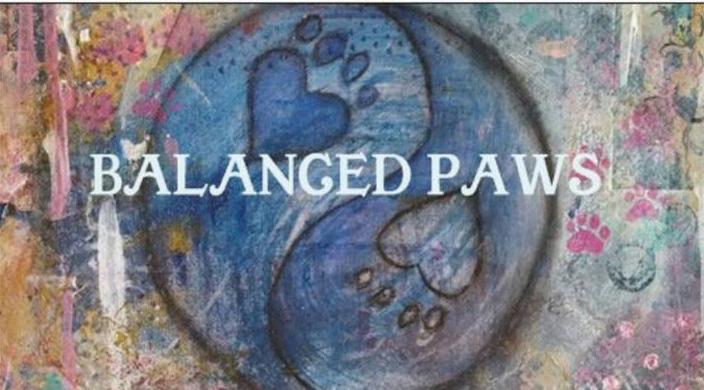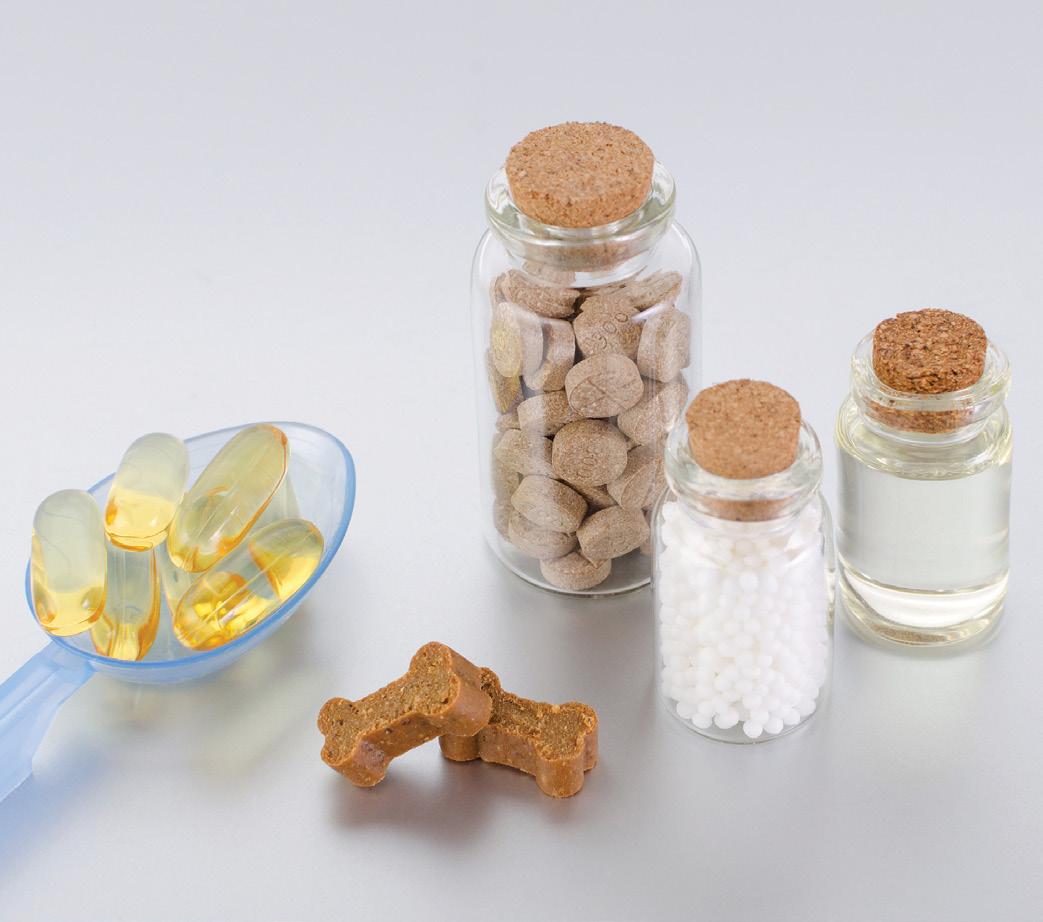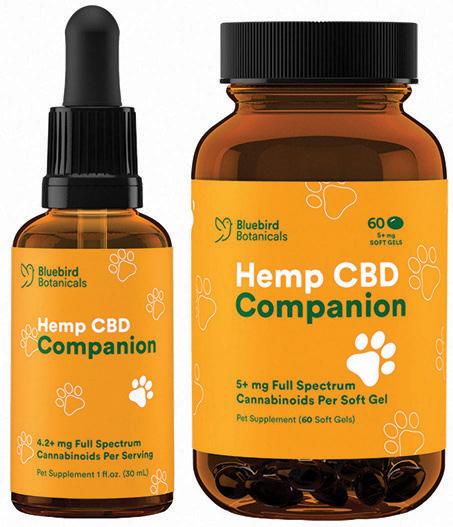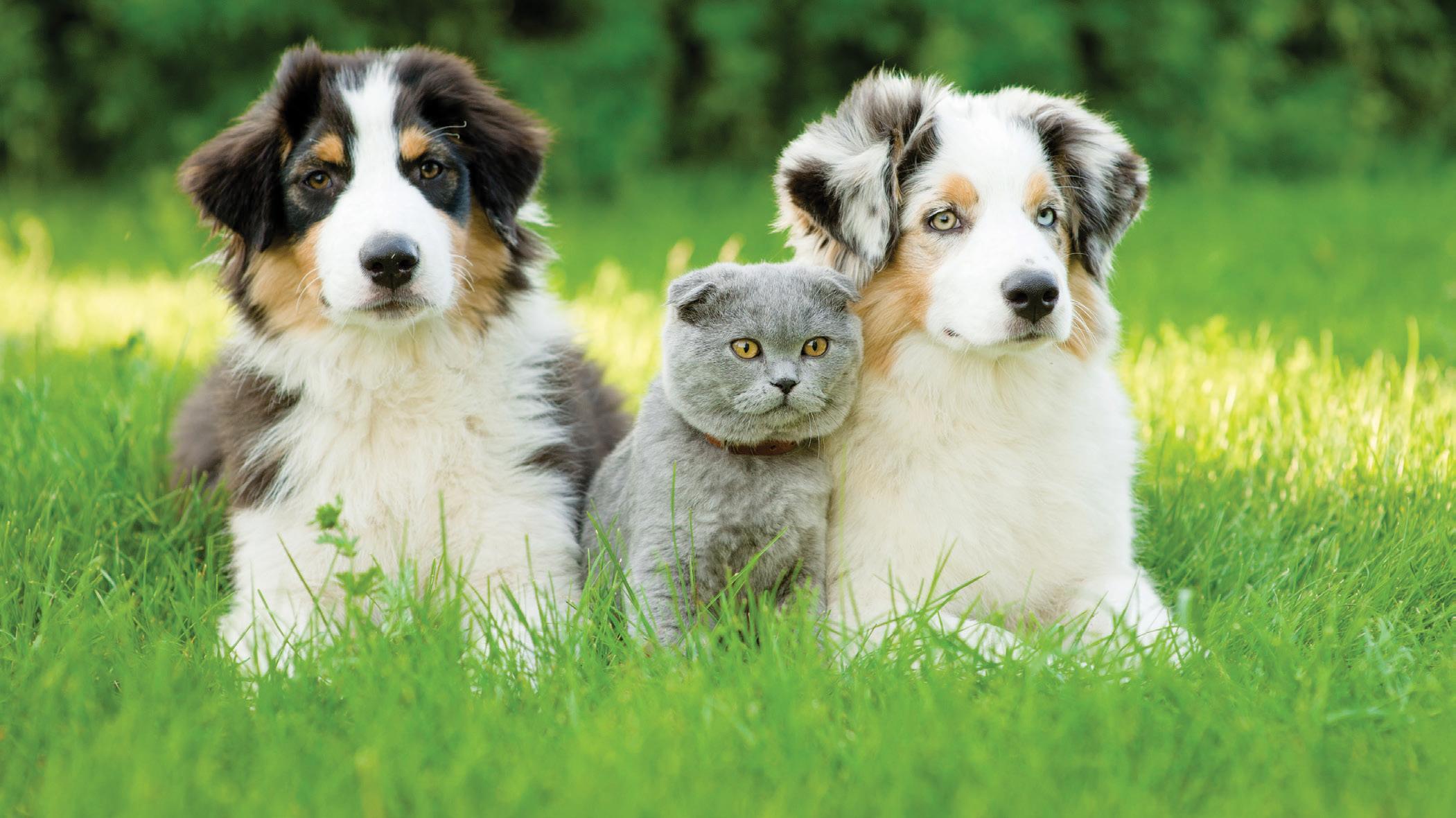
3 minute read
HOW TO PICK THE BEST CBD FOR YOUR PET

By Margy Squires
Advertisement
We love our pets! Our arrogant felines and cold-nosed canines. They seem to sense our pain. Give us a reason to take a walk. Snuggle in and cuddle. They make us smile with their adorable antics. Seriously, is there anything too good for Fido and Fluffy? The best food, comfiest pillow, oodles of toys! And if something new comes along, we’re all over it. CBD, short for cannabidiol, is hot. An extract from the hemp plant, its benefits make you wonder if CBD is too good to be true. CBD boasts painkilling properties, eases tremors and spasms, tones down inflammation, reduces anxiety and stress and calms a queasy tummy. Some research suggests it may slow tumor growth. All mammals are equipped with an endocannabinoid system (ECS), an internal regulatory system that helps the body maintain homeostasis. Just as CBD benefits people by influencing the ECS, it can help promote overall wellbeing and health in pets. Should you give CBD to your bundle of love? Perhaps yes if your furry friend has separation anxiety whenever you pick up your car keys. Stresses at a few rolls of thunder. Limps with an injury or arthritis. Is facing a painful end of life. CBD may help. Sadly, many veterinarians don’t carry CBD products, or recommend them. Why not? They may not be able to–yet.

While most states allow retail sales of CBD, the state board of Veterinary Medical Examiners may restrict or prohibit what veterinarians can recommend, prescribe or dispense, including CBD. Definitely approach the subject with your pet’s doctor but know the final decision may have to be yours. That could be a challenge. While passage of the farm bill barely a year ago changed the hemp regulatory system, the market is still too new. Regulations and labeling are inconsistent and missing vital information that is common to most supplement or herb products. But you don’t have to bypass this helpful extract. You can purchase a safe, effective product from a retailer by following a few simple “rules.”
Know the company you keep.
Buy from a company that is well versed in product labeling standards. In every industry there is a “policing” system. Look for the GMP seal. The Natural Products Association and FDA worked together to establish guidelines for Good Manufacturing Practices (GMP). A laboratory that passes GMP inspection by a third-party audit earns certification or cGMP status. Testing is in place for raw materials, production and finished product to meet label claims and to be free of contaminants. Would you trust your pet with the company?
Read the label, carefully.
Reputable CBD companies follow supplement or food label guidelines. Whether capsules or tincture (liquid), look for a Best Used By date for shelf life. Check for the serving size and clear instructions for use. How many milligrams (mg) of CBD are in the bottle? One of the ways to compare cost and value is cost per mg. A lot or batch number is critical; it’s the number used for any recalls (as with food or drugs). The company name and contact information is required and necessary should you have questions about the product. If any of this vital information is missing, think twice about purchasing for the safety of your pet!
Ask about the guarantee.
When a product is good, the guarantee backs it up. While 30 days is typical, 90 days is better! Many natural remedies work gradually to promote wellness on the cellular level. Start slowly with a low dose and increase if needed. This is true for CBD, too. Go slow and low.

Full spectrum and isolate.
Full spectrum CBD promises an “entourage effect” and includes all the nutrients like amino acids, vitamins, minerals, flavonoids and other compounds that increase and support CBD’s activity. Although CBD is the primary and most active, there are hundreds of other hemp cannabinoids that add health value. CBD isolate is purified CBD only—without the rest of the hemp plant’s natural molecules.

Go organic.
True hemp farmers know the plant is only as good as nurtured by wind, healthy soil and clean water. Glyphosate, a pesticide, is linked to cancer. Most pets, especially dogs, are very sensitive to chemicals. Look for a certified glyphosate-free CBD to be sure. Research supports the fact that organically grown plants have more nutritional value, too.
CBD CAN HELP RELIEVE AND MANAGE CONDITIONS nutritional value.

Supports
One last note.
You may wonder about THC, the psychoactive cannabinoid found in hemp. By law, products are only allowed to have up to but not exceed 0.3% content by dry weight. To be compliant CBD products undergo third party testing to ensure they meet this FDA regulation. Both CBS News and Consumer Labs did independent testing of several products pulled off store shelves. The CBD and THC content varied considerably, some not matching label claimed amounts. As your pet’s “parent,” you need to know what you are buying. Be bold and ask questions!


CBD can be a wonderful addition to Fido and Fluffy’s health regimen now that you know how to pick the best product for them that is safe and effective. Happy shopping!


Editor’s Note: For more background on CBD, read The ABCs of CBD in THE WAG, Winter 2019.









